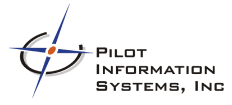Software Solution for Health Benefits Industry:
Revolutionizing Cost Containment with Efficiency
Cost Containment Without the High Cost
Duplicate Claims, payments never recovered for retroactively terminated members and simple coding errors can easily reach into the tens of millions even for a medium sized health plan. Overpayment rates of 5% to 8% of medical expense are common, and for even a small health plan or self insured employer, this can easily exceed several million dollars a year.
Duplicate claims are paid by health benefit organizations at an alarming rate. Added to this are a growing number of claims paid for but never recovered for retroactively terminated members. Code bundling that doesn’t conform to NCCI standards, Medically Unlikely Edits (MUE’s) and Global Surgical periods only make matters worse if you are not identifying them up-front. With margins so tight these days you can’t afford mistakes – whether system or people-generated. We can help you find those errors by identifying them at the time of entry or after the fact.
Cost Containment Insights
Unveiling Overpayment Causes
Inadequate Reporting
EDI Claims is the worst offender when it comes to the proliferation of overpayments. Some systems report potential overpayments but the reports are often not reviewed because they are too large and cumbersome to deal with.
Data Entry
While entering on-line, some systems produce warning messages that may not be clear, ignored or simply bypassed in order to maintain claims “productivity”.
Our Overpayment and Recovery System (OaRS) edits claims by mining your database for overpayments utilizing over 25 industry standard edits at a cost far below what our competitors charge.
Unlocking Secrets
Cost Containment and Overpayment Identification Marketplace
There are dozens of companies in the cost containment and overpayment identification marketplace. They all try to differentiate themselves by the way they implement their edits, but what most people don’t realize is that industry standard edits are just that – standard. That means that one company does not administer the NCCI edit any differently than the other. The same goes for MUE edits as well as Add-on Procedures, Global Surgical Days and Multiple Payment Procedure Reduction (MPPR). In fact, the source of the data used to drive these edits typically come from the same place.
